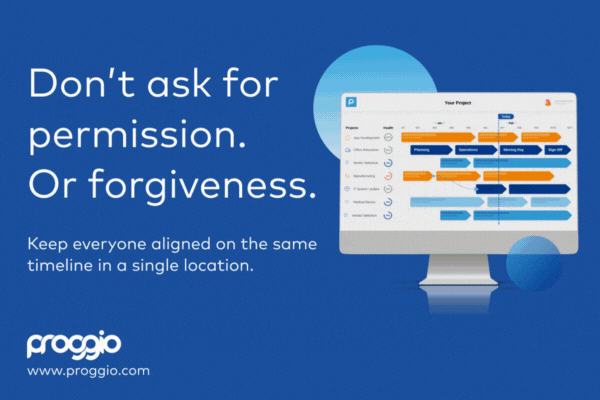Best of PMTimes: 5 Ways Your Company Culture Affects Project Management
A brand’s culture is the personality and identity behind the company.
It is the set of values, rules, and commitments that the employees live by at the office, and employers use to build an appealing brand image both internally and externally. So naturally, you can expect your company’s culture to influence and affect every process in every department, and thus effectively shape the future of your brand as a whole. When you’re managing a new project or several projects, though, your company’s culture will have avital role to play.
Not only will it help you assemble a crack team of professionals, but it will also help you delegate roles, ensure healthy and continuous communication and collaboration, set your goals and objectives just right, and ultimately deliver on the projected results ahead of time. With all of that in mind, here are the five ways your company culture can affect project management, and how to use it to take your projects to new heights of success.
Incentivize employees to increase productivity
At its core, your company’s culture serves the purpose of incentivizing your employees to love their job and the brand they work for. Through numerous employee-oriented rules and routines, the causes your company supports, and the values your brand stands for, you’re building a friendly work environment where people can live, laugh, and work with a positive attitude and a clear goal in mind – to give it their best on each and every project.
This is why it is important to find ways in which your company’s culture can directly influence and elevate the productivity of the individual, before you can start optimizing it to positively impact the team as a whole. Be sure to find out what moves your employees as well as the values they stand for, and try to weave them into the narrative in some form in order to inspire them to care for the project and its outcome.
Ensure accountability and boost collaboration
In order to manage a successful project from inception to finalization, you need to build accountability among your team members. Your employees and colleagues need to hold themselves and each other accountable for their actions, as well as the actions of the team as a whole in order to keep the project moving forward at all times, react to mistakes and setbacks effectively, and even predict possible pitfalls to avoid them successfully.
When you have accountability, you can also boost collaboration and co-dependence easily. Through a positive company culture that nurtures accountability and collaboration, your employees will lean on each other for support, you will be able to spark innovative thinking and decision-making, and of course, you will have an easier time running a tight ship with minimal risk of error.
Advertisement
[widget id=”custom_html-68″]
Bringing diversity to the team and the project
It’s no secret that one of the keys to an efficient and successful project is diversity. But beyond the project itself, your company’s culture should emphasize the need to attract, bring in, and retain diverse talent from numerous communities and demographics in order to improve the brand’s image, and bring value to the company in terms of skilled and loyal employees. This is a solution favored by Australian business leaders, so let’s take a look at their example.
In Sydney and other highly-competitive business hubs, project managers will source diverse talent from agencies such as atWork Australia in order to bring people with disabilities into their ranks and tap into a lucrative talent pool that resides within this community. Likewise, they will use AI-software and specialized HR recruitment programs to eliminate all bias from the recruiting process, in order to give all applicants a fair chance at proving their worth to the company.
Following the same mindset, be sure to bring people from all walks of life to your project in order to spark creativity and innovation, improve collaboration, and gain loyal brand members.
Define leadership roles and strengthen organization
Another way in which your company’s culture can help you manage your projects and deliver on the desired results is helping you assign leadership roles, structure communication, organize workflow, and organize your employees individually. Now, this requires you to combine your own leadership skills with the insights your company’s culture brings to the table in order to help with delegation and workflow.
Using your skills as a leader, be sure to analyze how your team members respond to the values of your brand and the governing rules that shape your culture, and then proceed to pick out the individuals best suited to run the team. Assign complementary personalities to your leaders, people you know are devoted to the cause and passionate about their work, and of course, find the right “contrasting” figure that will serve as the counterweight to the team – in order to improve the decision-making process and ensure critical thinking.
Carrying the project with shared values and passions
And finally, keep in mind that a positive company culture builds passionate mindsets. When your employees and team members are in love with their job, and when they resonate with the values of your company, they will invariably become more committed to the project, and they are likely to become passionate in the process. Through this shared passion, your team members will carry the project to fruition.
Final thoughts
Project management is the driving force behind long-term business success in the modern corporate world. Be sure to act on these insights and work on your company’s culture if you are to fine-tune the PM process, and create a diversified and passionate team that will take your brand forward as a whole.





